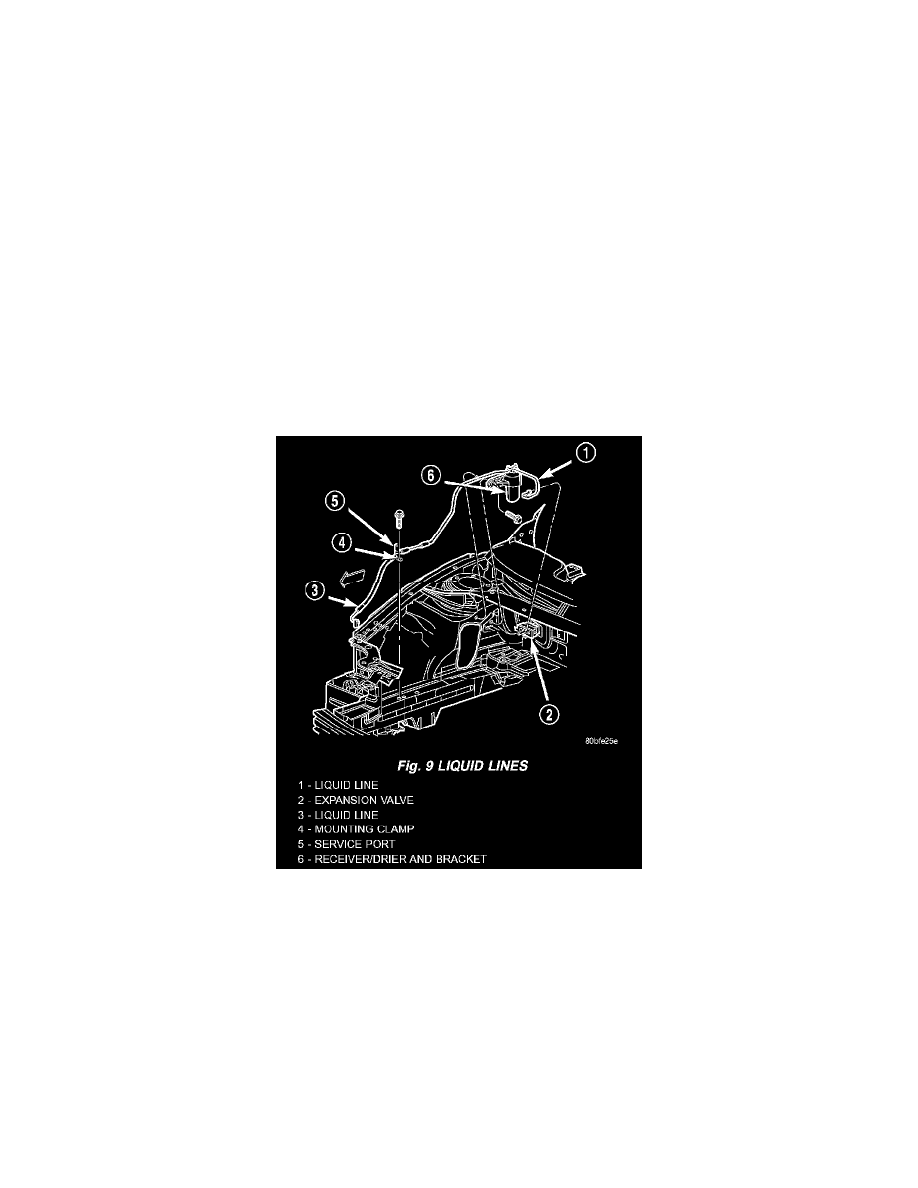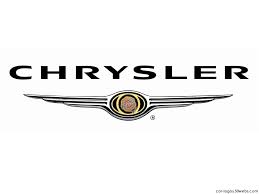300M Special V6-3.5L VIN G (2002)

Hose/Line HVAC: Service and Repair
A/C Liquid Hose/Line Replacement
REMOVAL
WARNING: REVIEW THE WARNINGS IN THE FRONT OF THIS SECTION BEFORE PERFORMING THE FOLLOWING
OPERATION.
1. Recover the refrigerant from the system. Refer to: Heating and Air Conditioning, Service and Repair, Refrigerant System Recovery, See:
Heating and Air Conditioning/Service and Repair/Refrigerant System Recovery
2. Remove the engine air inlet tube and the air distribution duct on vehicles equipped with 3.2/3.5 L engines.
3. Remove the a/c line to the expansion valve fastener using a M13 Hex wrench. Remove the suction line block from the expansion valve, cap the
line and swing it out of the way.
CAUTION: Cap off all lines that are not being replaced. Capiplug the expansion valve and condenser fittings.
4. Disconnect the liquid line fastener at the receiver/drier (the short receiver/drier to evaporator line may be removed at this step).
5. Disconnect receiver/drier bracket fastener and separate the bracket from the strut panel (there are two hidden plastic fasteners to pry out).
6. Disconnect the liquid line fastener at the condenser (M13 Flex).
NOTE: The radiator upper crossmember must be removed to access the liquid line fastener. Refer to Body for the procedures.
Fig. 9 Liquid Lines
7. Remove the liquid line mounting clamp fastener located near the service port.
8. Disconnect the liquid line fastener at the receiver/drier. Remove the liquid line from the vehicle. Cap off all fittings to prevent moisture from
entering the refrigerant system.
INSTALLATION
WARNING: REVIEW THE WARNINGS IN THE FRONT OF THIS SECTION BEFORE PERFORMING THE FOLLOWING
OPERATION.
Any kinks or sharp bends in the refrigerant plumbing will reduce the capacity of the entire air conditioning system. Kinks and sharp bends reduce the
flow of refrigerant in the system. A good rule for the flexible hose refrigerant lines is to keep the radius of all bends at least ten times the diameter of
the hose. In addition, the flexible hose refrigerant lines should be routed so they are at least 80 millimeters (3 inches) from the exhaust manifold.
